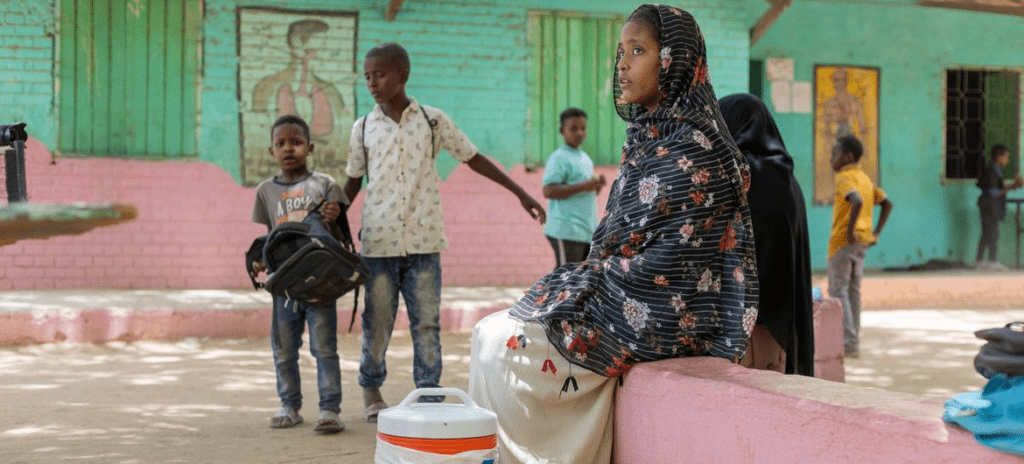
United Nations, 15 May 2024
The international community must give greater attention and resources to war-ravaged Sudan, where millions are “trapped in an inferno of brutal violence”, the top UN aid official in the country said on Wednesday.
UN Resident and Humanitarian Coordinator for Sudan, Clementine Nkweta-Salami, warned that “time is running out” as famine, disease and fighting close in on the population, with no end in sight.
“The international community cannot stand by as this crisis spirals out of control, as the noose of this conflict tightens its stranglehold on the civilian population,” she said, speaking to journalists at UN Headquarters in New York.
Clashes in Darfur
The Sudanese army and a rival military known as the Rapid Support Forces (RSF) have been locked in battle for more than a year.
Ms. Nkweta-Salami drew particular attention to the escalating hostilities in El Fasher, capital of North Darfur state, where clashes this past weekend reportedly caused numerous casualties and displacement.
She warned that “if the parties do not pull back from the brink”, the consequences will be devastating for the 800,000 people there.
Meanwhile, desperately needed humanitarian aid cannot get into the city.
More than a dozen trucks loaded with critical supplies for 120,000 people that had set out from the coastal city of Port Sudan on 3 April still have not reached El Fasher due to insecurity and clearance delays at checkpoints.

Death, destruction, displacement
“The fighting in El Fasher is another tragic example of this conflict’s grotesque impact on civilians,” she said.
UN agencies continue to respond to the devastation in Sudan, where thousands have been killed, homes and civilian infrastructure destroyed and horrific atrocities have been committed, including rape, torture and ethnically-motivated violence.
Roughly 18 million people – more than a third of the population – are going hungry, and at least five million people are on the brink of famine.
Sudan is now the world’s largest displacement crisis. Some nine million people have been forced to seek shelter, whether elsewhere in the country or across the border.
‘A perfect storm’
Most Sudanese now lack access to healthcare and an entire generation is missing out on education. UN agencies recently warned that famine is on the horizon, and the window to act is fast closing.
“We have just six weeks before the lean season sets in, when food becomes less available and more expensive,” Ms. Nkweta-Salami said.
Furthermore, two other deadlines loom: the start of the rainy season, which makes it even more difficult to reach people in need, and the end of the planting season, which could fail unless seeds can be delivered in time to farmers.
“In short, the people of Sudan are in the path of a perfect storm that is growing more lethal by the day,” she cautioned.
Underscoring the UN’s commitment to stay and deliver in the country, she noted that diplomatic efforts continue around the clock to bring the parties to the negotiating table to “silence the guns”.

‘We need action now’
“When that is achieved, the UN is ready to scale up and support recovery and reconstruction,” she said.
However, until then, humanitarians require unfettered access to reach people in need, wherever they are. Financial support is also critical as a $2.7 billion humanitarian appeal to support their operations is just 12 per cent funded. Finally, greater engagement is needed to end the fighting.
“It’s time for increased advocacy, increased attention and increased resources,” she said. “Time is running out. We need action now.”
The original article appeared here.